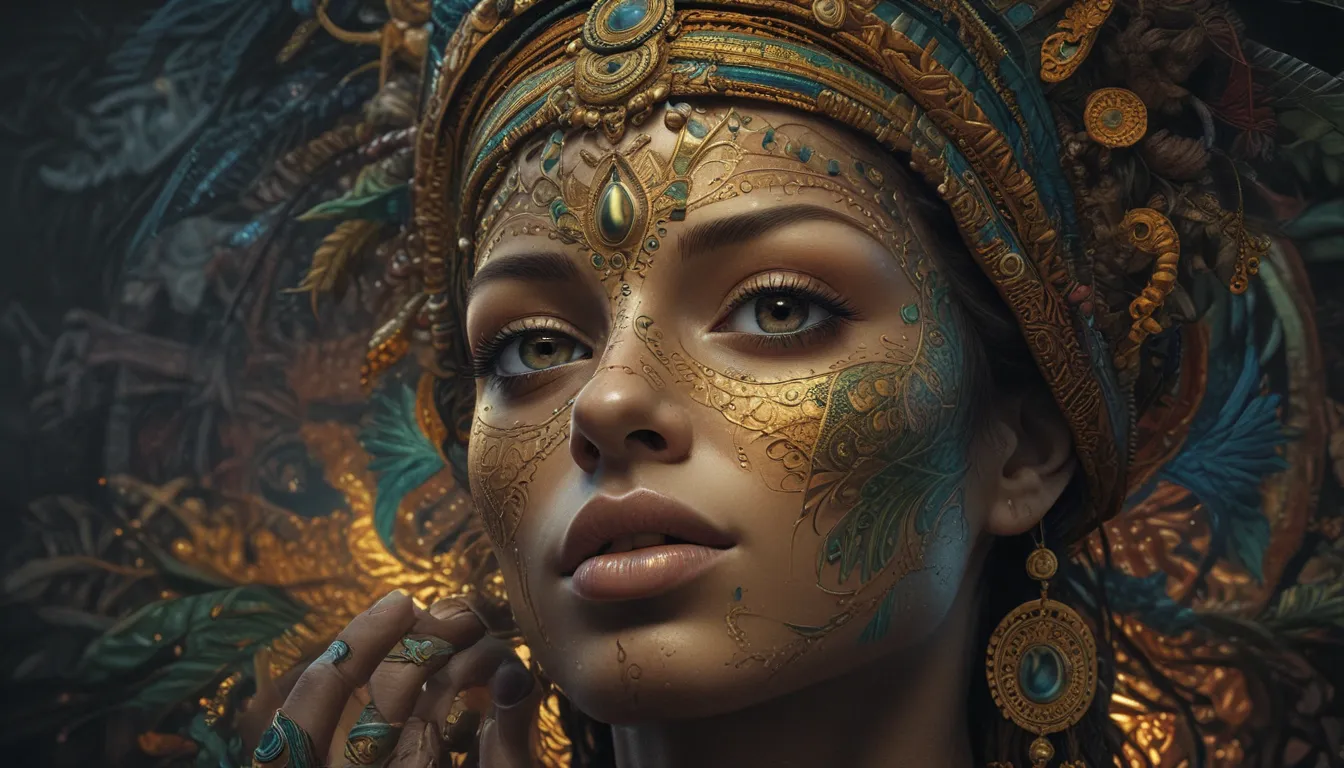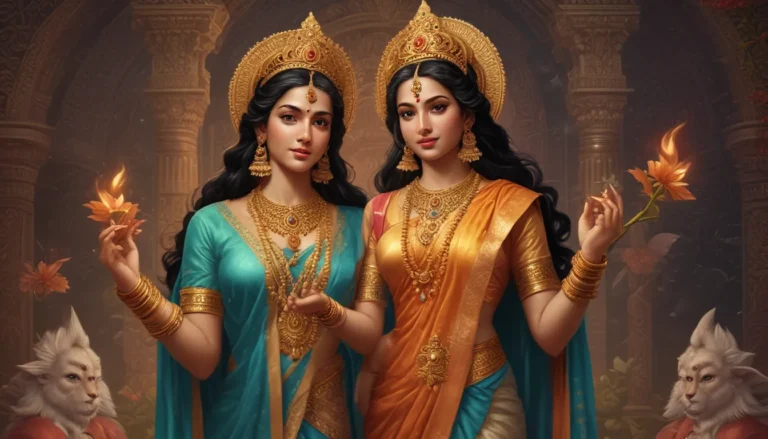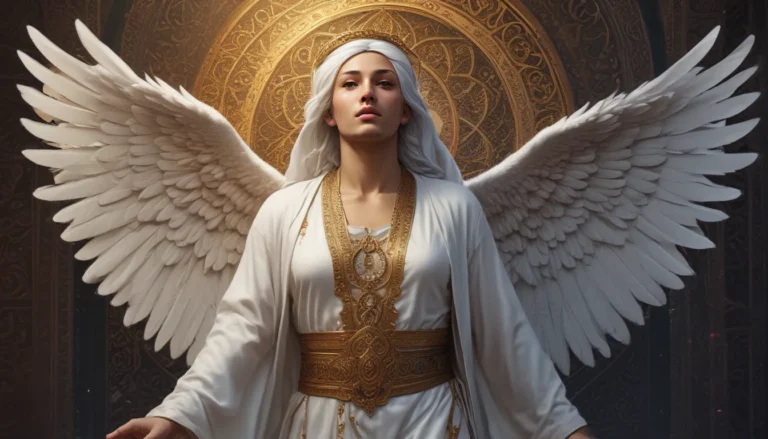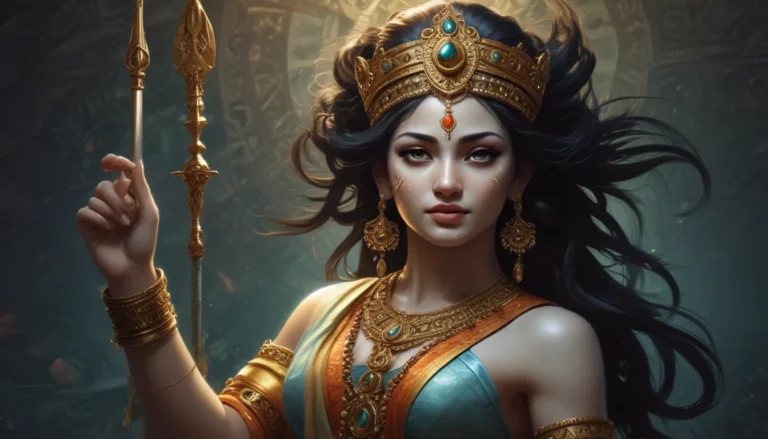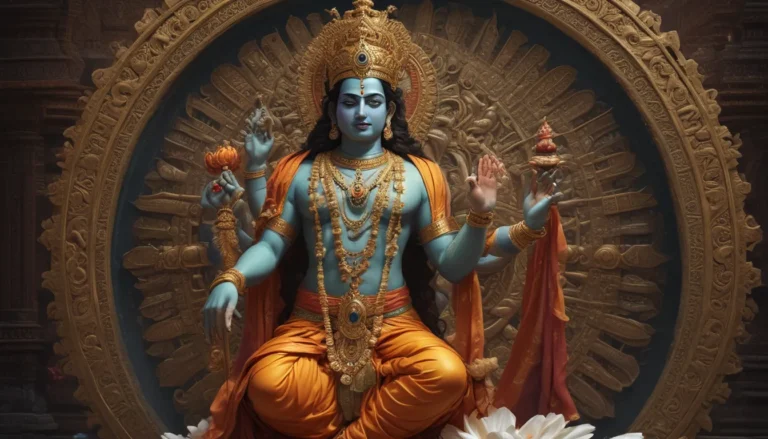The images in our articles may not match the content exactly. They are used to grab your attention, not to show the exact details in the text. The images complement the text but do not replace it.
Welcome to the intriguing world of Umbanda, a fascinating and complex religion that has captured the hearts of many followers worldwide. Originating in Brazil in the early 20th century, Umbanda is a syncretic faith that blends elements of African religions, Spiritism, and indigenous beliefs. In this article, we will embark on a journey of discovery as we uncover 18 interesting facts about Umbanda, from its origins and core beliefs to its rituals and spiritual practices. Join us as we unravel the mysteries of Umbanda and gain a deeper understanding of its deep-rooted traditions and beliefs.
Key Takeaways:
- Umbanda is a diverse religion from Brazil that combines African, Spiritism, and Catholic elements. It focuses on healing, inclusivity, and spiritual growth through rituals and mediums.
- Umbanda promotes harmony with nature, charity, and spiritual guidance. It has gained international recognition and has a strong cultural influence, making it a unique and enriching spiritual path.
Umbanda: A Syncretic Fusion
Umbanda is a syncretic religion that blends elements from African religions, Spiritism, Catholicism, and indigenous beliefs. This unique fusion creates a rich and diverse spiritual tradition that sets Umbanda apart from other belief systems.
Origin and Emergence
Founded in Brazil in the early 20th century, Umbanda quickly gained popularity among the Brazilian population. Today, it boasts millions of followers both in Brazil and around the world, showcasing the wide-reaching appeal of this enigmatic religion.
The Essence of Spirits
Central to Umbanda is the belief in spirits, including ancestral spirits, divine entities, and entities from other dimensions. Umbandists actively engage in communication and interaction with these spirits, forming a significant aspect of their spiritual practices.
Mediumship in Umbanda
Umbandists utilize mediums, also known as “cavalos” or horses, who serve as channels for communication between the physical world and the spiritual realm. These mediums play a crucial role in rituals and ceremonies, facilitating connections with the spiritual entities.
Healing as a Core Tenet
Healing is a fundamental aspect of Umbanda, with practitioners seeking to restore balance and well-being through spiritual rituals, prayers, and the use of herbs. This emphasis on healing underscores Umbanda’s focus on holistic well-being.
Diverse Ritual Practices
Umbanda rituals vary based on region and lineage, encompassing elements such as singing, dancing, drumming, offerings, and the use of spiritual tools like candles, crystals, and sacred symbols. These rituals form a vibrant tapestry of spiritual expression within Umbanda.
Unique Spiritual Lineages
Umbanda practitioners often affiliate themselves with specific spiritual lineages or “umbanda houses.” These lineages have distinct practices, rituals, and interpretations that contribute to the rich diversity of Umbanda’s spiritual landscape.
Spiritual Development and Connection
Umbanda encourages individuals to nurture their spiritual potential and deepen their connection with the divine through practices such as meditation, study, and self-reflection. This focus on spiritual growth underscores Umbanda’s holistic approach to personal development.
Reverence for Deities
Umbanda incorporates an array of deities and entities from various belief systems, including African Orishas, indigenous spirits, and Catholic saints. This inclusive approach reflects the syncretic nature of Umbanda and its embrace of diverse spiritual traditions.
Embracing Diversity and Unity
Known for its inclusivity, Umbanda welcomes individuals from all backgrounds, regardless of social status, ethnicity, or heritage. This ethos of unity, love, and compassion forms the foundation of Umbanda’s community and spiritual practices.
Branches and Specializations
Throughout its history, different branches of Umbanda have emerged, each with unique practices and beliefs focusing on specific deities or spiritual lineages. These branches contribute to the rich tapestry of diversity within Umbanda.
Cultural Impact and Influence
Umbanda has left a significant mark on Brazilian culture, influencing music, art, dance, and literature. Its deep integration into the cultural fabric of Brazil underscores the profound impact of Umbanda on societal and artistic expressions.
The Cycle of Reincarnation
Central to Umbanda is the belief in reincarnation, with followers embracing the continual cycle of birth, death, and rebirth as opportunities for growth and spiritual evolution. This belief in the transformative power of reincarnation shapes Umbanda’s spiritual worldview.
Charity and Service
Emphasizing the importance of charity and service to others, Umbanda communities actively engage in charitable activities to support those in need and contribute to the well-being of society. This demonstration of compassion and generosity reflects Umbanda’s core principles.
Spiritual Guidance and Insight
Umbanda offers spiritual guidance to its followers, providing insights and advice on various aspects of life, including relationships, career, health, and personal growth. This guidance serves as a beacon of wisdom and support for individuals navigating life’s challenges.
Musical and Rhythmic Ceremonies
Music and dance play integral roles in Umbanda ceremonies, creating a sacred and energetic atmosphere during rituals and spiritual gatherings. Rhythmic drumming, chanting, and dancing form essential components of Umbanda’s vibrant spiritual practices.
Global Recognition and Reach
In recent years, Umbanda has garnered international recognition, attracting followers beyond Brazil’s borders. Its inclusive spiritual practices and teachings resonate with individuals seeking a diverse and expansive spiritual path, contributing to its global appeal.
Harmony with Nature
Umbanda emphasizes the importance of living in harmony with nature and respecting the environment. Followers actively engage in rituals and practices that honor and connect with the natural world, embodying a deep reverence for the Earth.
In Conclusion
In conclusion, Umbanda stands as a fascinating and distinctive religion that weaves together elements of African, Indigenous, and Catholic beliefs into a syncretic tapestry of spiritual practices. Its inclusive nature, focus on healing and mediumship, and cultural impact underscore the richness and depth of Umbanda’s traditions. Engaging with the diverse spiritual landscape of Umbanda offers profound insights into the interconnectedness of belief systems and the transformative power of spirituality in individuals’ lives. Through its rituals, practices, and sense of community, Umbanda continues to provide comfort, guidance, and healing to its followers, evolving and adapting while upholding its core principles.
FAQs About Umbanda:
-
What is Umbanda?
Umbanda is a syncretic religion originating in Brazil, blending African, Indigenous, and Catholic beliefs with a focus on spiritual healing and mediumship. -
How does Umbanda differ from other religions?
Umbanda distinguishes itself through its syncretism, inclusivity, and emphasis on spiritual practices involving communication with spirits. Unlike other religions, Umbanda centers on a divine force known as Olorum. -
What are the main rituals and ceremonies in Umbanda?
Umbanda incorporates diverse rituals and ceremonies, including spiritual sessions known as “giras,” where mediums communicate with spirits. The use of candles, herbs, and sacred objects is also common. -
Who can practice Umbanda?
Umbanda is an inclusive religion welcoming individuals from all walks of life. Anyone drawn to Umbanda’s teachings and practices can participate, irrespective of their background or previous religious affiliations. -
Is Umbanda officially recognized as a religion?
In Brazil, Umbanda holds official recognition as a religion, with its practices protected by law. However, acceptance and recognition of Umbanda may vary in different parts of the world. -
Is Umbanda practiced only in Brazil?
While originating in Brazil, Umbanda has expanded to other countries like Argentina, Uruguay, and parts of Europe. Its global presence continues to grow, reflecting a broader interest in the religion. -
Can Umbanda coexist with other religious beliefs?
Yes, Umbanda’s syncretic nature allows it to harmoniously coexist with other religious beliefs. Many practitioners blend Umbanda with other faiths, integrating diverse beliefs and rituals seamlessly.
Exploring the multifaceted world of Umbanda reveals a rich tapestry of beliefs, practices, and traditions that offer a profound perspective on spirituality and interconnectedness. As you immerse yourself in the mysteries of Umbanda, consider delving into the intriguing history and enigmatic practices of Candomblé, another Afro-Brazilian religion that illuminates the cultural and spiritual mosaic of Brazil. For a broader exploration of spiritual traditions, our insights into spirituality facts provide valuable perspectives on the diverse ways individuals connect with the divine and find meaning in their lives.
We Value Your Feedback:
At the core of our commitment to delivering engaging and trustworthy content lies our dedication to user-contributed insights and information. Each fact on our platform originates from real users like you, ensuring a wealth of diverse perspectives and knowledge. Our meticulous editorial process guarantees the accuracy and reliability of the facts we share, enriching your learning experience with credible and fascinating information. Trust in our unwavering pursuit of quality and authenticity as you embark on an enlightening journey of exploration and discovery with us.
